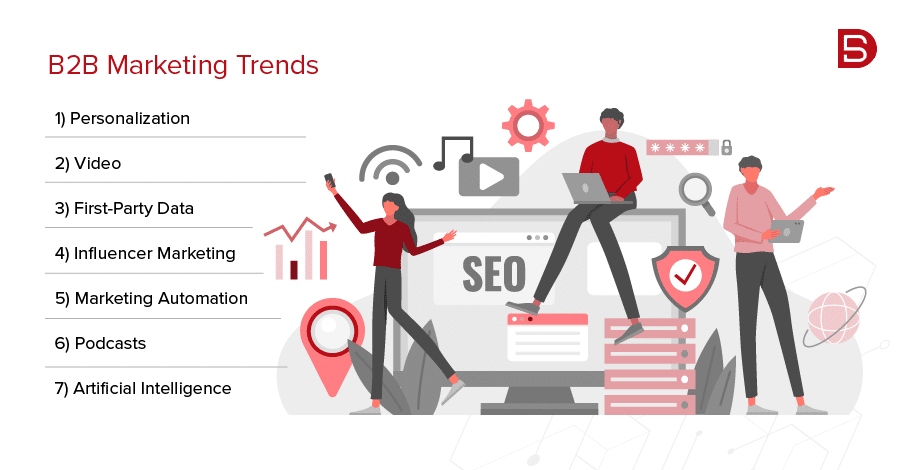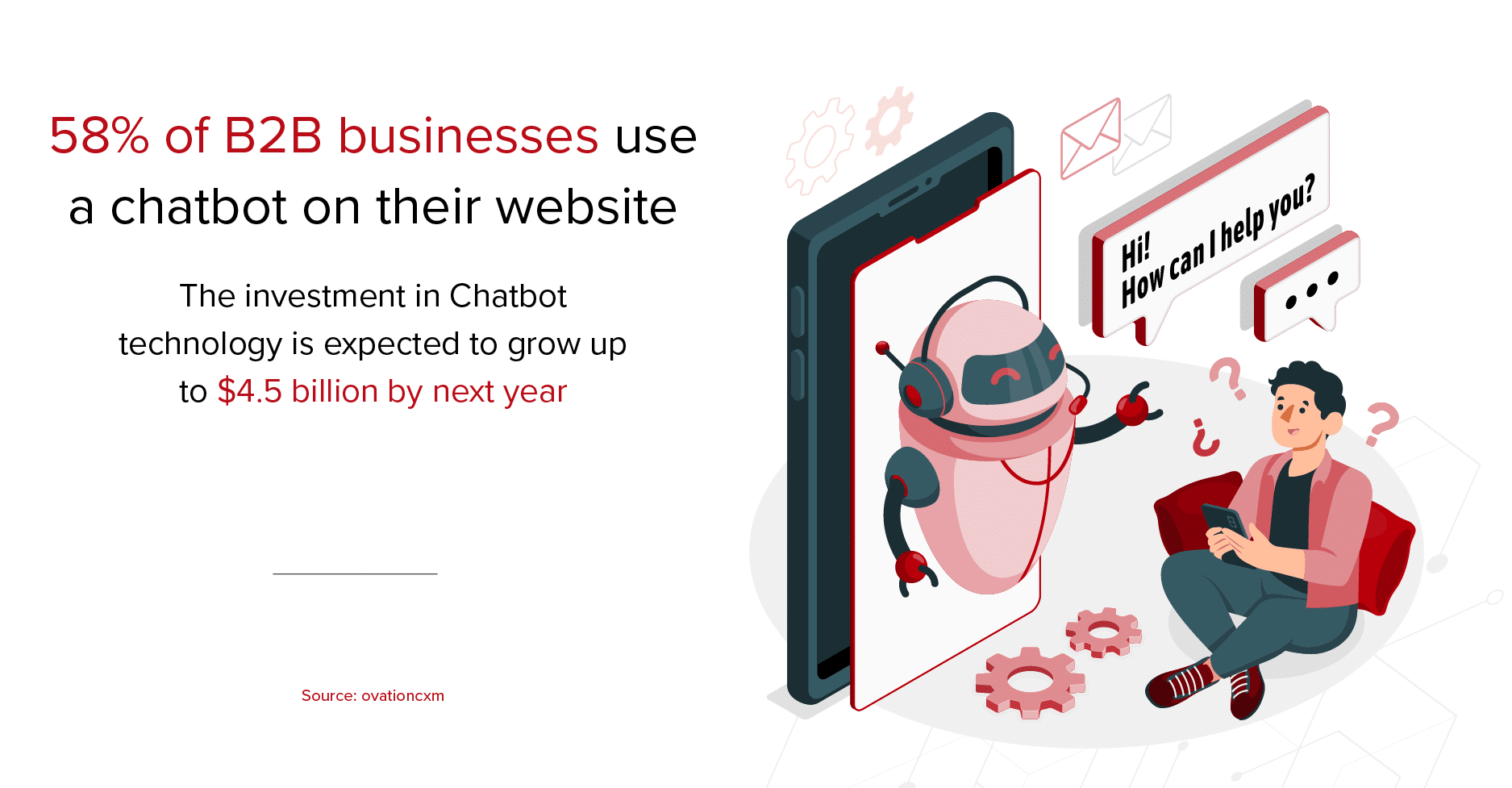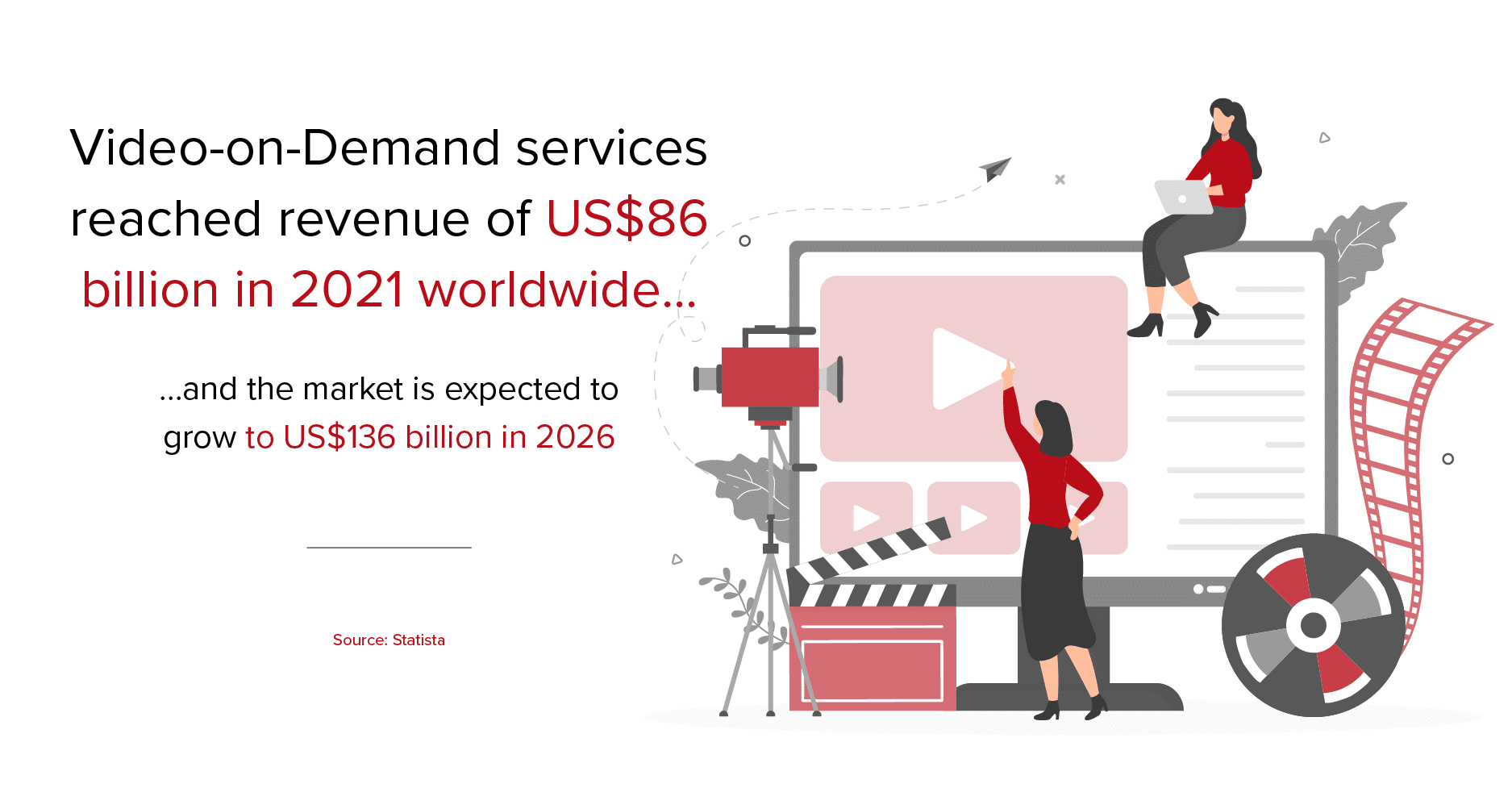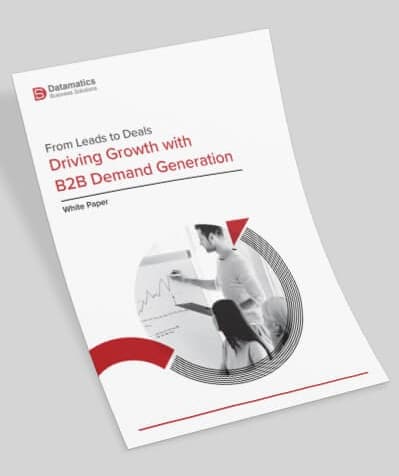The current B2B marketing landscape is far more complex than ever before. Modern B2B marketing leaders consistently face unforeseen challenges, even the seasoned marketing gurus. From the rising talent crunch to the ever-shrinking marketing budgets, marketing professionals have a battle to win on all fronts.
To top it all off, there are dynamic and shifting customer behaviors, constantly evolving technology ecosystems, new marketing channels, and stringent privacy regulations. Striking a balance between it all and carving out a marketing strategy that works can be daunting for any marketing professional.
That’s not to say that the era of logo acquisition through traditional marketing is almost over, if not completely over. The current business scenario across all industries is all about efficient and sustainable growth. To fulfill the demand for efficient growth leveraging sustainable means, your marketing campaigns need to harness the latest trends in the marketing space, focus on scalability, and manage growth to rule the B2B landscape.
To help fellow B2B marketers, we’ve identified and listed seven of the top B2B marketing trends that are currently dominating the landscape in 2024 and will continue to dominate at least for the foreseeable future. While this is not the “holy” list of B2B marketing trends, you can use these trends as inspiration for your marketing campaigns and carve your strategies around them. So, let’s look at the trends now.
Top 7 B2B Marketing Trends for Industries in 2025
1. Personalization at Scale
Personalization has emerged as the most effective way to make an impact with your marketing campaigns. The rise in data-driven marketing has made personalization at a scale rather easy for businesses. The increased penetration of the internet and connected devices has made customers more specific in terms of their needs and where they want it from.
They already know what your business has to offer and what they like; it’s up to businesses to engage with their audience in an omnichannel way to make sure that all touchpoints are being captured.
The most effective way to leverage personalization at scale is through chatbots, AI, and other marketing automation tools. The use of marketing automation software has grown significantly in recent times, thanks to their incredible capability to allow you to automate personalized campaigns based on customer behavior and preferences.
You can easily set up automated campaigns to target your customer base based on their industry, location, demographics, likes, or any other data point you have available on them.
2. Video Will Be the Preferred Content Format
Content marketing already is one of the most effective demand generation trends, businesses are expected to experiment with newer content formats to boost engagement with their customers. The rise in video content consumption over social media platforms already has cemented it as the preferred content format for modern customers.
It has compelled business owners to try different video formats such as live video streams, short informative videos, webinars, and even educational videos to attract and engage with their target customers.
According to a recent study, as much as 73% of businesses who have tried video content to engage with their audience have observed a positive impact on their ROI, while 93% admitted of acquiring new customers due to the video content posted by them on different channels.
Furthermore, around 66% of marketers who have used video content as part of their marketing strategy have admitted to generating more leads, as compared to their counterparts who stayed away from video content format.
As a result, as much as 41% of B2B marketers have admitted boosting their video marketing budgets for the future. So, if you have not tried video content to engage with your audience, create awareness, or even establish your brand as an authority in your field, we feel you must.
3. Stronger Emphasis on First-Party Data
For quite some time now, data has been the most powerful tool in the arsenal of modern B2B businesses. They rely on data to create their buyer personas, analyze product-market fit, or even determine the best market to launch their product.
However, much of that data has predominantly come from platforms such as Facebook, Twitter, Instagram, or even purchased databases. With increasing concern around how these social media giants handle customer data and businesses even getting penalized for using unfair means to gain access to customer data, we are seeing a change in this trend.
B2B businesses are now relying more on first-party data, which they own, for their marketing campaigns. Businesses have started leveraging the data sitting in their CRMs by organizing, enriching, and cleansing it using data enrichment, data cleansing, and other means.
First-party data gives businesses complete access and control over customer data, which makes it more effective and efficient for them. In the years to come, we will continue to see businesses use more and more first-party customer data for growth.
4. Influencer Marketing
Influencer marketing is on the rise, and despite a few minor dents in the growth of influencers, we do not see the phenomenon slowing down any time soon. Influencer marketing essentially requires a business to partner with influential individuals or organizations within their space for the promotion of a product or service.
Influencer marketing in the B2B marketing space involves partnering with thought leaders or experts from the relevant space to promote your company’s products or services.
Influencer marketing is an easy and effective way to establish your credibility and authority in a specific industry/space by partnering with an influential voice from that space. Influencers also help businesses reach a wider audience, create brand awareness, and consequently gain new customers.
B2B businesses are successfully leveraging influencer marketing to generate leads and drive sales, so for all the naysayers doubting the effectiveness of influencer marketing in the B2B space, let us tell you, it is a lot more effective than traditional marketing methods.
In conclusion, if you are a B2B marketer looking for ways to grow the credibility of your brand, increase brand awareness, and generate leads, influencer marketing is a good option to consider.
5. The Rise of Web3 as The New Frontier
Web3 is widely touted as the ‘future of the internet.’ This new avatar of the World Wide Web, or should we say the 3rd edition of the World Wide Web, is aimed at giving power back to the users, as opposed to the companies. The significant characteristics of this new era of digital technology are already apparent, with the rise of talks surrounding the decentralization of data, the metaverse, and the foundation of blockchains.
This upcoming digital era will be a lot more transparent and immersive in nature, featuring virtual experiences and revolving around community building. This is also where zero-party data will take center stage and emerge as the future of marketing. Businesses will be compelled to offer their B2B customers precisely what they want to persuade them to make a purchase.
Personalization through genuine and reliable communication between consumers and brands will be the true essence of Web3. That said, content marketing will continue to reign supreme even in the Web3 era. Thus, as B2B marketers, we need to learn how to rightfully leverage it in our Web3 marketing campaigns.
6. Podcasts to Emerge As “Surprisingly” Popular Marketing Channel
Podcasts already have cemented their place as an effective B2B marketing channel in the past few years. The monumental rise of podcast industry has compelled B2B organizations to take it as a serious option for:
- Establishing thought leadership
- Showcasing your product/services
- Connecting with potential customers
As per a recent LinkedIn survey, as much as 44% of C-Suites, function heads, and businesses confirm listening to podcasts. If you are a B2B marketeer and are looking for an innovative marketing channel, starting your own podcast is a great start.
7. The Role of AI
The influence of AI in B2B marketing goes beyond the current buzz. Short-term applications like chatbots and predictive analytics make waves, but a more profound, transformative role awaits AI in strategy and execution.
Through AI-driven insights and targeting, unparalleled levels of personalization and efficiency become achievable for marketers, signaling a transformative era in B2B marketing. Embrace the transformative future. This is a revolution, not a trend, and with AI as your partner, you’ll soar beyond the horizon of traditional marketing.
B2B Marketing Predictions for 2024: Strategies for Success
1. Elevating Brands through Audience Marketing
In the contemporary landscape, brand building goes beyond mere visibility, it involves establishing spaces where your audience actively seeks engagement. It’s about transforming your media channels into hubs for meaningful conversations and community building. This approach centers on directing audiences toward platforms where you wield control over both the message and the relationship.
2. Revving Up Revenue Marketing & Demand Generation
Expect a surge in demand generation trends for maximum performance with minimal resources. This shift will push revenue-focused marketing leadership to the forefront, trimming investments in non-hyper-targeted channels. The distinction between revenue marketing and demand generation will blur, with a greater emphasis on preserving revenue through retention and expansion efforts, rather than solely acquiring new customers. The focus is on efficiency and strategic expansion as the new norm in the business landscape.
3. Efficiency, The Winning Formula
As we step into the new year, a close examination awaits discretionary marketing budgets, sales headcount, and software costs. This heightened scrutiny urges GTM leaders to reassess their customer acquisition strategies, with a key focus on leveraging technology to target the most promising accounts.
For B2B players, the landscape may suggest a shrinkage in ‘in-market’ accounts, amplifying the risk of allocating resources to accounts not yet ready to make a move. To navigate this, embrace the ’95-5′ rule – channel efforts towards the 5% of in-market accounts ready to make a move. Remember, if you’re not actively pursuing these opportunities, your competitors are poised to swoop in first.
If you’re ready to take this one step ahead, partner with a seasoned demand generation services provider and leverage their expertise to identify and target your ideal customer profile (ICP), multiplying your chances of lead to deal conversion.
4. Era of Data-Driven Content: The Evolution of Thought Leadership
Bid farewell to conventional thought leadership; the future revolves around narratives woven with data. The focus will be on substantiating ideas with concrete facts and original research. It’s not merely about sounding intelligent; it’s about being intelligent, leveraging data to both inform and captivate.
5. Email Marketing in a New Light: Quality Trumps Quantity
The days of mass email blasts are behind us. It’s no longer just about sending a multitude of messages; the emphasis is now firmly on delivering the right content to the right audience. This shift underscores the importance of making each email count – a deliberate move toward crafting content that resonates with the recipient’s interests and preferences.
The focus is on quality, ensuring that the content reaching the audience’s inbox is not only relevant but also something they genuinely want to read. This strategy aligns with the evolving expectations of today’s consumers, embracing targeted and meaningful communication. By prioritizing quality over quantity, businesses can create more meaningful connections, driving engagement and effectiveness in email marketing.
6. Ring for Revenue: Elevating Appointment Setting Strategies
Sales teams are gearing up to be more strategic than ever, reshaping the understanding of “time is money.” Prior to picking up the phone for any appointment setting call, preparation with insightful information is key to offering prospects an exceptional buying experience.
As a sales rep, it’s essential to question: “What is my velocity? Where and how can I optimize my approach to set impactful appointments?” In this era of strategic selling, a ring for revenue demands deliberate strategy, emphasizing the significance of maximizing the value in each appointment-setting opportunity.
Conclusion
In conclusion, for the purpose of this blog, we covered the seven hottest B2B marketing trends. However, there are many other new and innovative trends on the rise across all industries. So, if you are a B2B marketer looking to capitalize on the new B2B marketing trends, you can consider some of these for your marketing efforts. Alternatively, you can reach out to us at marketing@datamaticsbpm.com, and we will tailor a suitable B2B demand generation solution to meet your business needs.
 Select an element to maximize. Press ESC to cancel.
Select an element to maximize. Press ESC to cancel. Select an element to maximize. Press ESC to cancel.
Select an element to maximize. Press ESC to cancel.Frequently Asked Questions

Kent Wu





